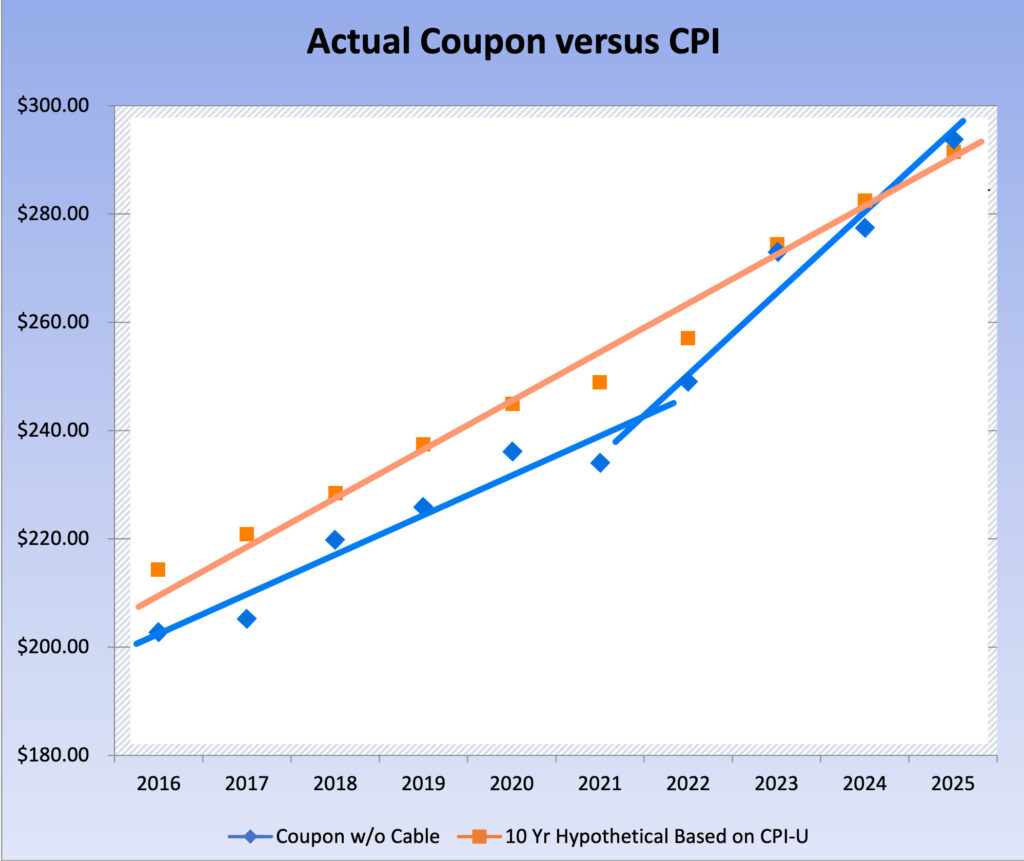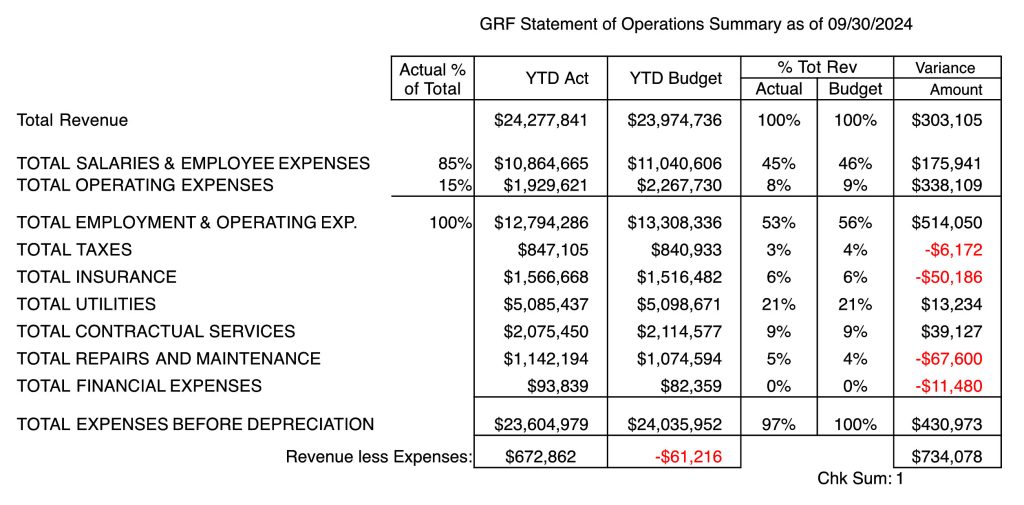
Rossmoor’s Call for Change: A Community in Need of Leadership
Nestled in the Tice Valley area of Walnut Creek, Rossmoor has long been a haven for its residents, offering a quality of life that many cherish. However, as with any community, the nature of things dictates that change is inevitable. In recent years, a growing sense of decline has permeated Rossmoor, prompting calls for effective leadership and sound operating systems to ensure the community’s continued success.
At the forefront of these concerns is the Golden Rain Foundation (GRF), Rossmoor’s support services provider, led by a board of directors and management team. Critics argue that GRF is deficient in three crucial areas: leadership, operational systems, and communication. These shortcomings have far-reaching consequences, impacting various aspects such as staffing and service levels.
Direction: A Costly Misstep
Since 2022, the cost of GRF-provided support services has surged, outpacing the broader economy.

This financial strain is largely due to inadequate managerial performance. Residents have absorbed some these costs through reduced service levels in Building Maintenance, Room Reservations, Transportation other Departments, a visible sign of the community’s struggle. At the end of 2024 there were, and likely remain, efforts to further cut services, which are symptomatic of a leadership failure and the absence of essential management systems.
Goals: Detached from Aspirations
Setting and prioritizing goals is a cornerstone of leadership, guiding management’s efforts forward. However, GRF’s goal-setting process is flawed. It centers on an annual “Goals Retreat” orchestrated by Operations Management for Board Members, which often includes unrelated objectives. As a result, the annual goals are disconnected from community aspirations and not taken seriously. A board meeting highlighted this issue when a member noted that the 2024 goals were largely unchanged from the previous year.
Systems: Lacking Data-Driven Insights
Operations management likely has processes for meeting daily responsibilities, but there is little evidence of a data-driven system for planning, processing, or reporting performance. While some managers claim, “if it’s not measured, it can’t be managed,” there is scant evidence of metrics for departmental performance or service level attainment. This lack of objective data makes it difficult for stakeholders to evaluate alternatives or options for proposals. Community representatives, tasked with considering staffing levels and departmental effectiveness, face a similar challenge due to the absence of performance metrics and related reports.
Initiatives: A Need for Discipline
Management initiatives often lack discipline, stretching projects over long periods and consuming unnecessary staff time. This approach is inefficient and costly, frequently causing turmoil and stress within the community. Residents have begun to internalize this tendency, responding accordingly. However, there are bright spots, as management shows uneven abilities. Capital projects and contractor management tend to proceed orderly, while resource planning and community services provisioning are less so.
Staffing: A Call for Action
For over a year, the management of GRF has been vocal about the pressing staffing issues they believe pose an existential threat to the organization. Despite these dire warnings, however, management has faced criticism for potentially using these challenges as a pretext for excusing inaction rather than tackling the root causes head-on.
A significant concern is the reliance on reactive staffing processes, which have been particularly detrimental. These processes have affected service levels across various departments, including Accounting, Mutual Operations, Building Maintenance, Room Reservations, and Transportation. The inability to anticipate and address staffing needs has left these departments struggling to maintain efficiency and effectiveness.
Adding to the alarm, GRF management revealed in a presentation at the start of February 2024 that nearly half of the workforce is nearing retirement. This high turnover rate was highlighted as a major issue, yet management subsequently explained why they felt powerless to mitigate the impact of expected losses. As such, throughout this process, staff turnover is expected to lead to reduced services. This is in line with the previously noted shortfalls and corollary Salary & Employee Expenses budget surplus of up to $175,941 cited in 2024 financial reports.

If left unaddressed, this situation is likely to lead to a decline in both service levels and employee performance. However, there is hope. This can be averted by focused executive action by senior GRF officials.
Communication: Bridging the Gap for Improved Communication in Rossmoor
In recent years, the relationship between the Golden Rain Foundation (GRF) and Rossmoor residents has become strained. This decline in communication has not only affected the community but also beyond the region. Despite the introduction of several remedial measures, such as increased town-hall meetings, which have shown promise in fostering dialogue, some management officials appear resistant to change, preferring the status quo.
The communication structure of GRF, while meeting the minimum statutory standards, lacks the ability to create a genuine dialogue. This has led to widespread suspicion among residents about the motives and intentions of the management team. Furthermore, a perceived lack of candor has eroded trust, making it challenging to rebuild without substantial changes.
For the well-being of Rossmoor and its residents, it is important that GRF takes decisive action to improve its communication practices. By fostering open and honest dialogue, the Foundation can address concerns, restore trust, and work collaboratively with the community to achieve common goals. It is time for GRF to embrace change and prioritize the needs of the people it serves.
Leadership: A Need for Vision and Shift in Perspective
In the realm of GRF management, talent and skill abound. Each employee is capable of making valuable contributions to our community. However, critical blind spots persist that require timely attention. One such area is the development and mentoring of managerial talent, which could be significantly accelerated to benefit the organization.
A strategic vision is paramount for GRF’s future. Yet, the current management’s approach to mid to longer-term planning remains anchored in the past, overlooking the evolving trends that shape our future. For example, the focus on replacing MOD and GRF administrative facilities is largely on replicating existing structures in various configurations. There is a notable absence of discussions on the dynamic changes anticipated in the nature of work, the workplace, and the workforce, and how these shifts will influence our future needs.
Recently, there has been a trend within management circles to seek solutions internally, viewing service delivery through a lens of control. While this focus is understandable, it inadvertently detracts from the primary goal of ensuring the best possible outcomes for residents. Instead, it places a higher emphasis on administrative efficiency, sometimes at the cost of service quality.
The heart of this issue lies in the intent of management. Are they primarily focused on serving and supporting resident customers, or are their concerns more aligned with maintaining bureaucratic interests? This question is crucial as it reflects the underlying priorities that drive decision-making processes.